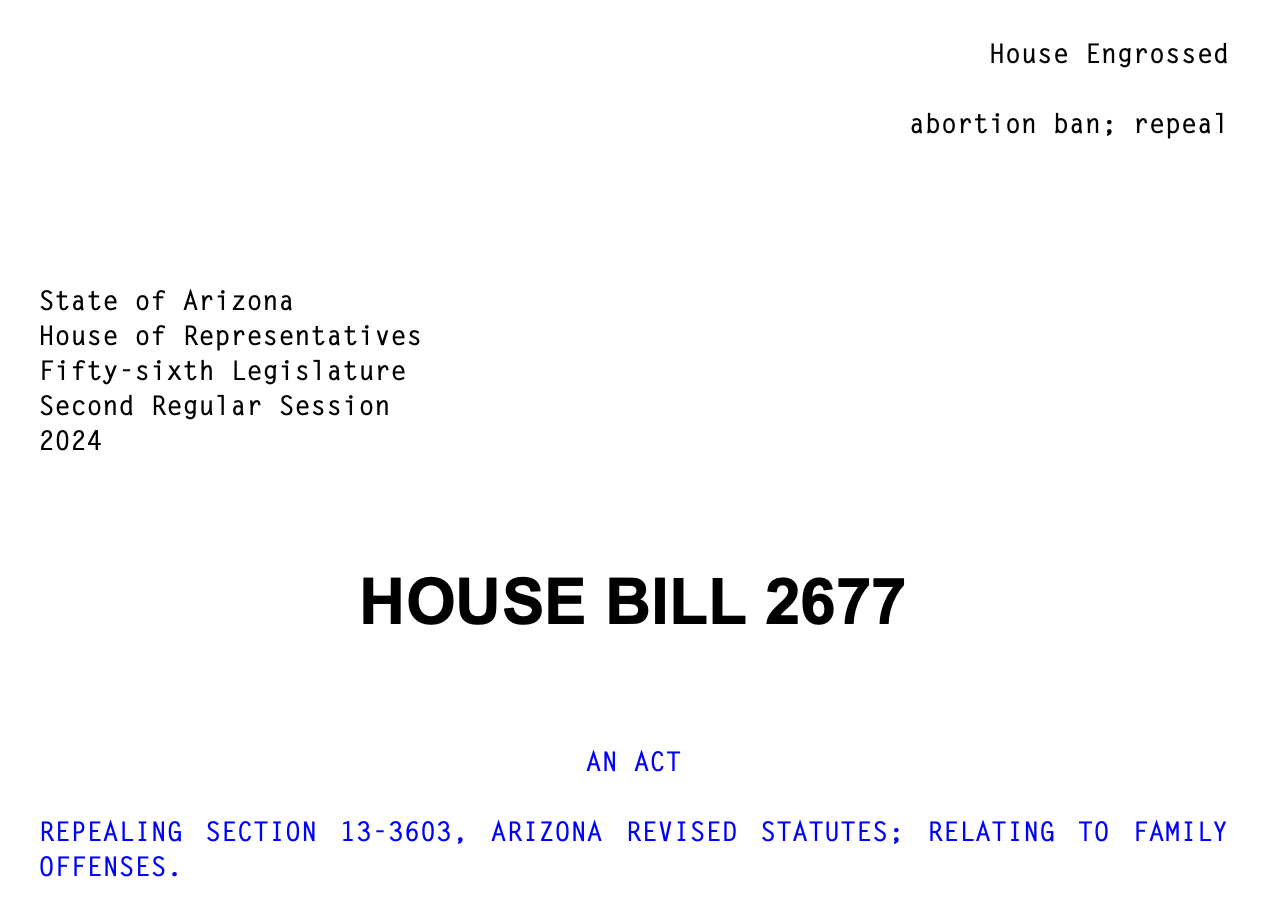Arizona passed repeal of its Civil War-era abortion ban. Now what?
Attorney General Kris Mayes is already focused on the next steps after Wednesday's Senate vote sending the repeal to Gov. Katie Hobbs's desk.
With a one-sentence bill, Arizona’s lawmakers have passed the repeal of its oppressive, Civil War-era, near-total abortion ban.
Gov. Katie Hobbs, a Democrat, will sign the repeal into law.
Although praising the passage as “a win for freedom in our state,” Attorney General Kris Mayes, a Democrat, has pointed out that, because the bill contained no emergency clause, it will not immediately take effect — which could prove to be an issue.
The passage of the repeal bill, H.B. 2677, is the consequence of an April ruling from the state’s Supreme Court, holding that the law remained enforceable — despite the state’s passage in 2022 of a 15-week abortion ban.
The 15-week ban will remain in effect for now, but the state is also expected to vote in November on a proposed constitutional amendment that would guarantee more robust abortion protections.
Two Senate Republicans and three House Republicans joined legislative Democrats in overturning the near-total ban.
Read Law Dork’s coverage of the history of the 1864 ban, originally passed when Arizona was still a territory.
Because the bill does not have an emergency clause — which would have required a likely insurmountable 2/3 vote requirement — the repeal won’t likely go into effect until August (90 days after the legislature adjourns sine die). The near-total ban, though, is due to go into effect as soon as June.
Mayes is already working on the potential timing problem.
“[W]ithout an emergency clause that would allow the repeal to take effect immediately, the people of Arizona may still be subjected to the near-total abortion ban for a period of time this year,” she said in a statement. “Rest assured, my office is exploring every option available to prevent this outrageous 160-year-old law from ever taking effect."
On Tuesday — though technically unrelated — Mayes’s office asked the Arizona Supreme Court to stay the issuance of the mandate in the case holding the near-total ban enforceable. As I’ve discussed previously here at Law Dork, the mandate’s issuance is the formal action that returns jurisdiction to a lower court to enforce the court’s decision. Here, the Civil War-era ban would not actually be enforceable until at least 45 days after the issuance of the mandate, due to an agreement in another case discussed previously at Law Dork.
In Mayes’s filing on Tuesday, she sought a 90-day delay of the issuance of the mandate so that, per the filing, her office can decide whether it is going to seek further review of the Arizona Supreme Court’s decision by the U.S. Supreme Court.
I’m not sure about that, but, according to the filing, such stays are “routine” and the rule “does not require require a party to demonstrate good cause” for granting such a request, so a reason — however slim — would seem to be more than sufficient for the court to grant that request.
If granted, that would push the issuance of the mandate to July 25 — 90 days beyond the date when the Arizona Supreme Court denied Mayes’s request for reconsideration — which would then block enforcement to at least 45 days beyond that, to Sept. 8.
At that point, the repeal law passed on Wednesday likely will have gone into effect — meaning that the 15-week ban would remain the applicable law throughout this entire time — and the expected vote on the proposed constitutional amendment will be less than two months away.







Thank you for this. You are doing amazing work.
Good news. i just do not understand how a "law" can be enacted from a period of time that AZ was not a state. "Territorial" law? i just don't understand.